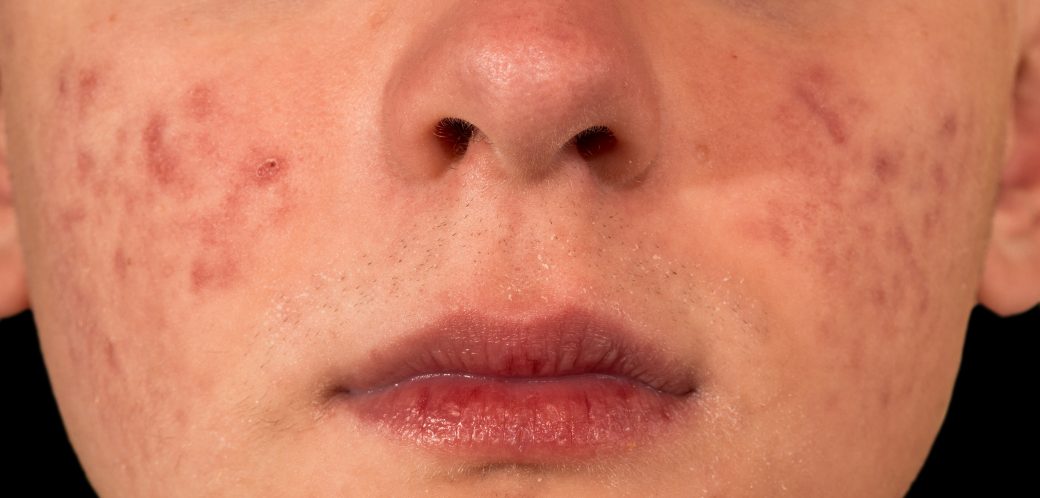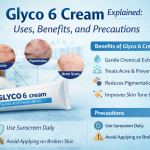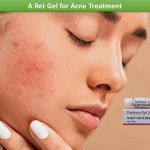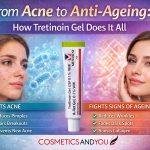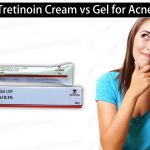Acne is known as the most common cause of spots. Most people with acne are aged between 12 to 25, but some older and young people are affected too. Small sebaceous glands lie just below the skin surface and produce oil (also known as sebum), which keeps your skin supple and smooth. Tiny pores on your skin allow this sebum to come onto your skin surface. In acne, some of these pores become blocked, causing blackheads, small pimples, and whiteheads (comedones). Applying Tretinoin gel to the areas of your skin with acne will help to unblock the pores and treat blackheads or comedones. It also has an anti-inflammatory effect. Tretinoin is an acid form of vitamin A. Once the skin absorbs it, it stimulates normal maturation of cells in the upper layer of the skin. As it does, it helps by activating genes that cause them to undergo a 21-day life cycle, during which they progress to the skin surface. Tretinoin gel is exactly the right treatment for stubborn acne problems. The cost of the cream depends on its strength, which is available in 3 different concentrations- tretinoin gel 0.1, tretinoin gel 0.05, and tretinoin gel 0.025.
How it Works
Tretinoin is a great treatment for acne. Many people who have oily skin don’t get affected by acne problems until they spend too much time in the sun. The dryness and harmful rays of the sun cause the skin to flake. Some of these flakes become stuck in the pores, where they are merged with the oil. Tretinoin stimulates the growth of the skin around the clogged pore. The pore opens naturally with squeezing, tweezing, steaming or detergent treatment.
Tretinoin gel also works amazingly in treating small, newly formed nodules and cysts that are covered by a transparent layer of skin. It encourages the skin to grow around the nodule by opening up the cyst without draining. To see noticeable results, you must use this gel regularly for an extended period. Some of the side effects you may notice while using this cream is redness of the skin or skin flaking. These adverse effects are a result of the exfoliation process that is taking place.
Precautions
Before using Tretinoin gel, take extra care, as it may not be suitable for individuals with certain conditions. Don’t use Tretinoin without your dermatologist’s advice if:
- You are a nursing mother
- If you are pregnant or trying to get pregnant, the gel may get absorbed into your skin and can harm your unborn baby.
- You have other skin problems, such as eczema or rosacea
- You had skin cancer before.
- Are you on any other medication, whether prescribed or not prescribed by a doctor?
- You have a history of allergies to other medications, especially those related to Vitamin A, such as isotretinoin.

